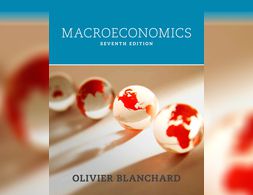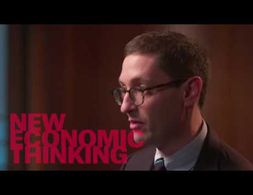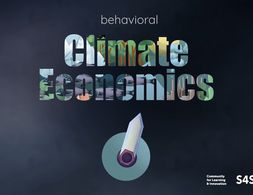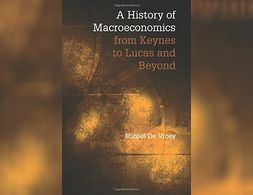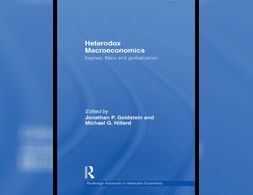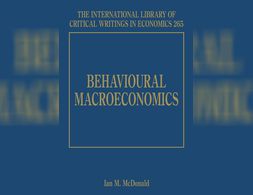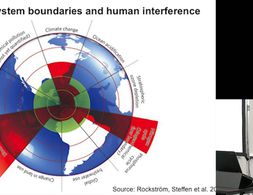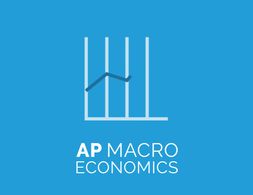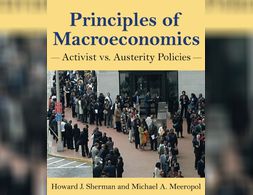✕
148 results
This article applies insights from behavioral economics to consider how the general public may make decisions around whether or not to receive a future COVID-19 vaccine in a context of frequent side effects and preexisting mistrust. Three common cognitive biases shown to influence human decision-making under a behavioral economics framework are considered confirmation bias, negativity bias, and optimism bias.
As seen with the United Nations significant promotion of the Sustainable Development Goals (SDGs) in the past few years, the issue of global development is of growing concern to many international organizations. As humanity continues to become more interconnected through globalization, the inequalities and injustices experienced by inhabitants of impacted countries becomes increasingly clear. While this issue can be observed in the papers of different types (e.g., different schools of thought) of economists throughout the world, the work of behavioral and complexity economists offer a unique, collaborative perspective on how to frame decisions for individuals in a way that can positively reverberate throughout society and throughout time.
Behavioural economics deals with observing behaviour and economic decision making behaviour.
In this paper the main developments in post-Keynesian macroeconomics since the mid- 1990s will be reviewed. For this purpose the main differences between heterodox economics in general, including post-Keynesian economics, and orthodox economics will be reiterated and an overview over the strands of post-Keynesian economics, their commonalities and developments since the 1930s will be outlined. This will provide the grounds for touching upon three important areas of development and progress of post-Keynesian macroeconomics since the mid-1990s: first, the integration of distribution issues and distributional conflict into short- and long-run macroeconomics, both in theoretical and in empirical/applied works; second, the integrated analysis of money, finance and macroeconomics and its application to changing institutional and historical circumstances, like the process of financialisation; and third, the development of full-blown macroeconomic models, providing alternatives to the mainstream 'New Consensus Model' (NCM), and allowing to derive a full macroeconomic policy mix as a more convincing alternative to the one implied and proposed by the mainstream NCM, which has desperately failed in the face of the recent crises.
This lecture is all about the challenge to include heterodox approaches into macroeconomics. After giving an overview of recent approaches to that problem Professor Michael Roos presents the theoretical framework of Complexity Economics as a means to combine behavioral aspects with macroeconomics.
Sporting events can be seen as controlled, real-world, miniature laboratory environments, approaching the idea of “holding other things equal” when exploring the implications of decisions, incentives, and constraints in a competitive setting (Goff and Tollison 1990, Torgler 2009). Thus, a growing number of studies have used sports data to study decision-making questions that have guided behavioral economics literature.
This is an introductory level core course in macroeconomics for those expecting to take further courses in economics. It provides a theoretical and applied approach of introductory macroeconomics, with an international perspective and applications to account for the growing importance of the global economy and the rising openness of economies.
The current Great Recession, the worst crisis that capitalism has faced since the Great Depression, has failed, at least so far, to generate a change in the teaching and practice of Macroeconomics. This seems bizarre as if nothing has happened and the economists are just going about doing business as usual. In light of this, the current paper attempts to address how Macroeconomics ought to be taught to students at the advanced intermediate level, which gives them an overall perspective on the subject.
For intermediate courses in economics. A Unified View of the Latest Macroeconomic Events Macroeconomics, Blanchard presents a unified, global view of macroeconomics, enabling readers to see the connections between goods, financial markets, and labor markets worldwide.
Macroeconomics in Context: A European Perspective lays out the principles of macroeconomics in a manner that is thorough, up to date, and relevant to students. With a clear presentation of economic theory throughout, this latest addition to the bestselling "In Context" set of textbooks is written with a specific focus on European data, institutions, and historical events, offering engaging treatment of high-interest topics, including sustainability, Brexit, the euro crisis, and rising inequality. Policy issues are presented in context (historical, institutional, social, political, and ethical), and always with reference to human well-being.
In this video University of Warwick Economist Robert Akerlof provides an introduction to a new type of behavioral economics He explains how this type is being driven by a desire to understand how people are shaped by social interactions and what the economic consequences of this are He begins the …
Richard Thaler gives a lecture in the 2018 Nora and Edward Ryerson Lecture at the University of Chicago. In the lecture he discusses his Nobel Prize winning research.
Through this course you will learn how individuals and firms make financial decisions and how those decisions might deviate from those predicted by traditional financial or economic theory We will explore the nature of these biases and their origins using insights from psychology neurosciences and experimental economics on how the …
How can we get people to save more money eat healthy foods engage in healthy behaviors and make better choices in general There has been a lot written about the fact that human beings do not process information and make decisions in an optimal fashion This course builds on much …
This book is intended as a textbook for a course in behavioural economics for advanced undergraduate and graduate students who have already learned basic economics. The book will also be useful for introducing behavioural economics to researchers. Unlike some general audience books that discuss behavioural economics, this book does not take the position of negating traditional economics completely.
Can pluralism in economics be useful to tackle the fight against climate change? How can diversity in methods and ideas allow for a better understanding of the issue of the climate crisis?
This book retraces the history of macroeconomics from Keynes's General Theory to the present. Central to it is the contrast between a Keynesian era and a Lucasian - or dynamic stochastic general equilibrium (DSGE) - era, each ruled by distinct methodological standards.
Macroeconomics is fundamental to our understanding of how the world functions today. But too often our understanding is based on orthodox, dogmatic analysis.
Heterodox Macroeconomics offers a detailed understanding of the foundations of the recent global financial crisis
This book gives a very clear overview of the history of Macroeconomics and how it has evolved. It reflects on the different perspectives and debates that have defined the field, with valuable insight into the history and theory of economic policy.
This book provides a new methodological approach to money and macroeconomics. Realizing that the abstract equilibrium models lacked descriptions of fundamental issues of a modern monetary economy, the focus of this book lies on the (stylized) balance sheets of the main actors. Money, after all, is born on the balance sheets of the central bank or commercial bank.
Heterodox Macroeconomics offers a detailed understanding of the foundations of the recent global financial crisis.
This lecture acts as an introduction to the Macroeconomics course (ECON 720) at John Jay College. Throughout the lecture, the classical and Keynesian conceptions of macroeconomic relationships are contrasted.
This unique up-to-date volume not only provides state-of-the-art discussions of the most recent developments in modern macroeconomics but also includes a series of interviews with leading economists that shed new light on the major intellectual and policy issues of the 1990s. The book is at once an invaluable text and a superb overview that will be welcomed by teachers and students alike.
Designed for a single-semester undergraduate course, this introductory economics textbook updates traditional macroeconomics to encompass twenty-first century concerns. In contrast to standard texts, the book starts with the question of human well-being, and then examines how economic activities can contribute to or detract from it.
This invaluable volume brings together seminal articles with a significant behavioural content on various areas in macroeconomics.
The world has changed dramatically in recent years and so has the field of economics, but many introductory economics textbooks have remained stuck in the past. This book provides a new beginning for the study of macroeconomics, fundamentally international in its approach and emphasizing current debates and research trends.
This course is an introduction to macroeconomics with a specific focus on the euro area. The theoretical part provides a critical presentation of the two key macroeconomic models: the (neo)classical approach and the Keynesian approach. This allows a comparative analysis of important macroeconomic topics:
- unemployment
- inflation
- government debt and Modern Monetary Theory
- banks and financial crises.
The policy-oriented part discusses the monetary policy of the ECB and the specific challenges for fiscal policy in the euro area. The course also presents other euro area specific topics: Optimum currency area, euro crises, Next Generation EU and Green New Deal.
In the keynote speech, Sigrid Stagl argues why it is necessary to include socio-ecological aspects in macoreconomic models. The talk focuses on the ecological necessities, mentioning limits to growth, resource extraction and planetary boundaries. At the end, Stagl shortly presents several current macroeconomic initiatives and models that move towards a a socio-ecological macroeconomics.
This course provides an introduction into the basic concepts of mainstream macroeconomics, including supply and demand in a competitive market, to all the usual introductory macroeconomic topics, and also to both international trade and the Foreign Exchange Market.
Principles of Macroeconomics by Howard J. Sherman and Michael A. Meeropol differs from other texts in that this book stresses far more the inherent instability of the macro-economy.
Colanders Macroeconomics 11e is specifically designed to help today’s students succeed in the principles of economics course and grasp economics concepts they can apply in their daily lives.
We use cookies on our website. Click on Accept to help us to make Exploring Economics constantly better!








